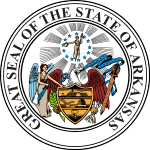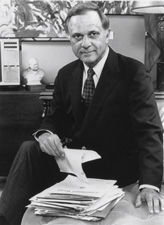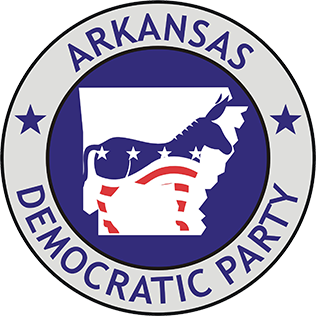| |||||||||||||||||
| |||||||||||||||||
 County results Parnell: ContentsLivesay:50–60% 60–70% 70–80% | |||||||||||||||||
| |||||||||||||||||
| Elections in Arkansas | ||||||||||
|---|---|---|---|---|---|---|---|---|---|---|
 | ||||||||||
| ||||||||||
The 1930 Arkansas gubernatorial election was held on November 4, 1930, to elect the Governor of Arkansas, concurrently with the election to Arkansas's Class II U.S. Senate seat, as well as other elections to the United States Senate in other states and elections to the United States House of Representatives and various state and local elections.
The three classes of United States Senators are made up of 33 or 34 Senate seats each. The purpose of the classes is to determine which Senate seats will be up for election in a given year. The three groups are staggered so that senators in one of the groups are up for election every two years, rather than having all 100 seats up for election at once. For example, the 33 Senate seats of class 1 were up for election in 2018, the elections for the 33 seats of class 2 will take place in 2020, and the elections for the 34 seats of class 3 will be held in 2022.
Incumbent Democratic Governor Harvey Parnell had won office in 1928, and was seeking reelection in 1930. During this period, it was customary for faithful governors to be reelected to a second term in Arkansas. In the Solid South, winning the Democratic primary was tantamount to election, a trend that resulted in Democratic control of the Arkansas Governor's Mansion from 1874 to 1967. Parnell won a seven-candidate primary, and was nominated by the party. The Republicans nominated James Livesay, a lawyer from Foreman in Little River County.

The Democratic Party is one of the two major contemporary political parties in the United States, along with the Republican Party. Tracing its heritage back to Thomas Jefferson and James Madison's Democratic-Republican Party, the modern-day Democratic Party was founded around 1828 by supporters of Andrew Jackson, making it the world's oldest active political party. The Democrats' dominant worldview was once social conservatism and economic liberalism while populism was its leading characteristic in the rural South. In 1912, Theodore Roosevelt ran as a third-party candidate in the Progressive Party, beginning a switch of political platforms between the Democratic and Republican Party over the coming decades, and leading to Woodrow Wilson being elected as the first fiscally progressive Democrat. Since Franklin D. Roosevelt and his New Deal coalition in the 1930s, the Democratic Party has also promoted a social liberal platform, supporting social justice.
Harvey Parnell was a farmer and politician from Southeast Arkansas. Parnell served in the Arkansas General Assembly for eight years, first in the Arkansas House of Representatives, and later serving a term in the Arkansas Senate. Following the re-establishment of the lieutenant governor position, Parnell won the statewide election and served under Governor John Martineau. When Martineau resigned to take a federal judgeship in March 1928, Parnell was elevated to become the state's 29th governor, a position he would hold until 1933. Early in his time as governor, Parnell was responsible for Progressive reforms popular with rural voters, including expansion and modernization of the highway system and public school reform. But as the Dust Bowl and Great Depression ravaged the Arkansas economy, Parnell's programs were blamed for bankrupting the state, and his popularity plummeted. He left politics after his second full gubernatorial term ended in January 1933.

For the play titled Solid South see Lawton Campbell
Parnell defeated Livesay in a landslide election, but would see his popularity decline sharply in the next two years, as the Dust Bowl and Great Depression damaged the Arkansas economy. Parnell's popular progressive programs from his first term would come under fire in his second term, with many claiming his highway modernization program and school reforms were bankrupting the state.

The Dust Bowl was a period of severe dust storms that greatly damaged the ecology and agriculture of the American and Canadian prairies during the 1930s; severe drought and a failure to apply dryland farming methods to prevent the aeolian processes caused the phenomenon. The drought came in three waves, 1934, 1936, and 1939–1940, but some regions of the high plains experienced drought conditions for as many as eight years. With insufficient understanding of the ecology of the plains, farmers had conducted extensive deep plowing of the virgin topsoil of the Great Plains during the previous decade; this had displaced the native, deep-rooted grasses that normally trapped soil and moisture even during periods of drought and high winds. The rapid mechanization of farm equipment, especially small gasoline tractors, and widespread use of the combine harvester contributed to farmers' decisions to convert arid grassland to cultivated cropland.

The Great Depression was a severe worldwide economic depression that took place mostly during the 1930s, beginning in the United States. The timing of the Great Depression varied across nations; in most countries it started in 1929 and lasted until the late-1930s. It was the longest, deepest, and most widespread depression of the 20th century. In the 21st century, the Great Depression is commonly used as an example of how intensely the world's economy can decline.

















